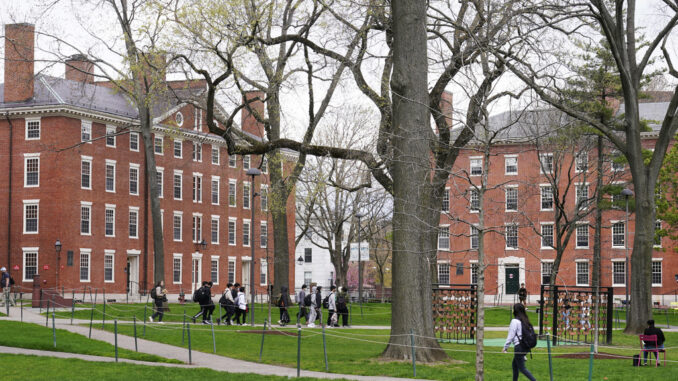
Remember the days when college presidents were paid a pittance since universities sponsored by religious organizations and state governments couldn’t pay them a lot in salary? Or when coaches had to tend bar during the off-season to make ends meet?
Yeah, me neither.
Higher education institutions, public and private, were granted nonprofit, tax-exempt status a long time ago to help them compete with the private sector to attract the best and the brightest faculty, administrators and coaches to teach the next generation of citizens. Everything about granting them nonprofit status had to do with “enhancing the educational experience” of every student on campus, not just the jocks or administrators.
Most major universities today are multibillion-dollar enterprises which should be run by professional CEOs and CFOs, not pure academic-types. They should be treated as the businesses they are and not protected in any way by nonprofit status or any tax exemption solely because they call themselves “educational” entities.
College athletics, particularly at the college football Division I level, has been heading towards big-time business status ever since UNC System President Bill Friday presented the seminal Knight Commission report in 1991. College programs routinely pay their coaches multimillion-dollar contracts with tons of attendant bonuses and benefits dependent solely upon winning, not on how many student-athletes make the honor roll, go to graduate school or even graduate.
How is that “enhancing” the educational experience in the classroom?
Paying athletes NIL money sounds like a fair and equitable thing to do from the student-athlete standpoint. However, once athletes take NIL money, they should be considered “independent contractors” or employees of the university. Everything should change from a tax perspective relative to them and the universities they represent. All NIL money received by an individual athlete should be taxed, just as it is in the private sector. It should be subject to the dreaded self-employment tax which will take 15.3% of every NIL contract off the top to support Social Security and Medicare.
Once student-athletes are deemed “paid participants,” the value of their scholarship tuition, room and board should also be taxable since the athlete is performing entertainment for the university and its fans on a contractual basis. College teams with paid athletes would be no different than minor league baseball teams such as the Durham Bulls.
None of the money generated by athletic programs makes its way into the general scholarship fund for non-athletes or into the research budgets for the science centers on campus. It all stays in the athletic director’s budget.
In the broader sense, universities and colleges should be taxed as businesses simply because they have out-grown the need for tax subsidies to exist. I represented a nonprofit mutual insurance company which asked the Joint Tax Committee in Congress to eliminate their tax-exempt status because they no longer needed it ― they needed it when they started in 1945 with a $10,000 community chest grant but did not need it as a $10B concern in 1995.
The director of Joint Tax almost fell out of his chair when he heard the request. But it was the right thing to do.
However, the primary reason colleges and universities deserve to lose tax-exempt status is because they have violated the non-partisan nature of nonprofit statutes.
The underlying tenet of non-profit law is that operations will be conducted in a non-partisan, purely altruistic manner without any deference to political philosophy or advocacy. University presidents and faculty jumped that shark a long time ago. When presidents of Harvard, MIT and Penn testified before Congress that hate speech on campus towards Jews “depends on the context” taken by supporters of Hamas and Palestinians, they exposed once and for all their overt political advocacy instead of teaching and leading by example with open civil discourse and fair, balanced dialogue.
Harvard has a $51B endowment which throws off $4B in income and dividends each year on a non-taxable basis. They should be taxed ― by eliminating the deductibility on individual donors’ tax returns as they come in and out of the endowments as dividends and interest income flow out. Private universities such as Harvard can teach, do and say whatever they want — as long as they don’t have tax-exempt status or receive taxpayer funds in any capacity.
Colleges and universities don’t even pay property taxes to local communities which would perhaps double municipal budgets to provide better public schools and a better equipped police force. They sometimes pay the ridiculously named “PILOT” (Payment In Lieu of Taxes) payment but it far less than what should be paid if they were taxed like a regular business.
The economics and political manipulation of higher education has reached a point where they have no business operating under tax-exempt, nonprofit status. The time to rescind it at the state and federal level is now.


